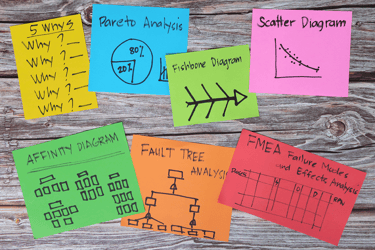The Packaging Industry's Sustainability Challenge: Why ERP Systems Are Essential for Success A straightforward guide to navigating sustainability regulations across folding carton, flexible...
The Plastic Packaging Tax
In this blog, we cover why the Plastic Packaging Tax was introduced, who pays it, and what you can do to stay ahead in this ever-evolving landscape.
Contents
- What is The Plastic Packaging Tax?
- Why has a tax on plastic packaging been introduced?
- How much is The Plastic Packaging Tax?
- Who has to pay tax on plastic packaging?
- What compliance obligations fall under The Plastic Packaging Tax?
- How can ePS Packaging help?
What is The Plastic Packaging Tax?
The Plastic Packaging Tax (PPT) came into effect on 1st April 2022 and is designed to encourage the use of more recycled plastic and applies to plastic packaging produced in, or imported into, the UK that does not contain at least 30% recycled plastic.
Why has a tax on plastic packaging been introduced?
Since the 1970s the rate of plastic production has grown faster than any other material. If these historic growth trends continue, the global production of primary plastic is forecasted to reach 1,100 million tonnes by 2050; so this tax has its sites on reducing single-use plastic packaging in favor of reusable plastic packaging.
Of the plastics currently produced, approximately 36% of all plastics produced are used in packaging, including single-use plastic products for food and beverage containers, approximately 85% of which end up in landfills or as unregulated waste.
In addition to the plastic packaging tax, last year, the U.K. government announced a ban on plastic-containing wet wipes.
"The removal of plastic from Aldi wet wipes two years ago has been positive for our customers and the environment," Luke Emery, plastics and packaging director of Aldi
Research has shown that plastic-containing wet wipes have been a persistent issue in environmental pollution with research showing an average of 20 wet wipes per 100 meters of beach are found across the U.K. Find out more on this legislation.
How much is The Plastic Packaging Tax?
The current rate of tax on plastic in the UK is currently £217.85 per tonne, first introduced in 2022, the historic rates are below:
- 2022–2023: £200 per tonne
- 2023–2024: £210.82 per tonne
- 2024–2025: £217.85 per tonne
Who has to pay tax on plastic packaging?
You will need to register to pay, if:
- You manufactured or imported 10 or more tonnes of plastic packaging in the last 12 months
- Expect to import into the UK or manufacture in the UK 10 tonnes or more of finished plastic packaging components in the next 30 days
You will need to pay the tax if you have manufactured or imported plastic packaging components that contain less than 30% recycled plastic.
What compliance obligations fall under the tax?
Registration, record-keeping, evidence, and sampling requirements are all requirements of the tax. Businesses need to ensure they have adequate evidence to defend their filings, including adequate supply chain due diligence, even where no tax is due and effective sampling procedures where appropriate.
Supply chain due diligence and detailed evidence of recycled content will be required to defend and support the tax decisions for components that contain more than 30% recycled content. This is required on a component-by-component basis at the production run level, even for imported goods.
There are also invoicing requirements where taxable plastic packaging components are supplied to a business customer by the person who paid the tax. This includes the sale of packaged goods, where the person making the sale is the one who pays the tax on the packaging. Therefore, systems and controls may need to be adapted accordingly, and it takes time to do.
How can ePS Packaging help?
The facts surrounding the climate emergency are startling, and as Governments across the world accelerate their efforts to address reducing its impact, increasing and more complex legislation is a certainty
Compliance departments need to partner with software providers that invest in research and development, and are knowledgable of the latest trends impacting the industry to protect manufacturers and importers from this complicated and ever-changing landscape.
Radius offers a comprehensive solution for tracking plastic packaging throughout its lifecycle, whether it's manufactured, imported into the UK, or brought in as a filled product, irrespective of its registration liability.




